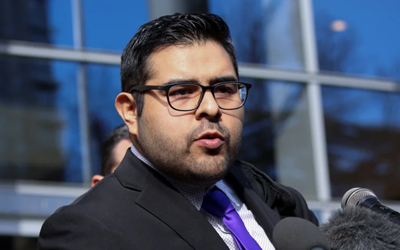Texas Federal Judge invalidates DACA — what happens next?

On Friday, July 17, a federal District Court Judge in Texas issued a surprise ruling that found the Deferred Action for Childhood Arrivals (DACA) program violated federal rulemaking procedures and thus was illegal. DACA is a federal program started under the Obama Administration in 2012 that is designed to protect from deportation undocumented immigrants who arrived in the U.S. as children. There are more than 616,000 DACA recipients in the U.S., according to the U.S. Citizenship and Immigration Services (USCIS).
In his opinion, Judge Andrew Hanen found that the DACA program violated the Administrative Procedure Act (APA), which requires new federal regulations to use notice and comment rulemaking. Judge Hanen issued a permanent injunction against DACA, effectively halting the approval of any new DACA applications. However, Judge Hanen’s ruling also temporarily stayed the order vacating the program for the several hundred thousand current DACA recipients and their employers, meaning their status will not be affected by this ruling until a higher court, and possibly the Supreme Court, make a final determination.
What does this mean for current DACA recipients and new applicants to the program?
First, Judge Hanen issued a temporary stay to his order, so that means current DACA recipients will not be impacted by the ruling—yet. Anyone who had been approved for DACA status prior to the ruling will still receive the program’s benefits and protections, and employers who rely on the DACA program to give legal status to some of their workforce.
However, the ruling does mean that the Department of Homeland Security (DHS) is now prevented from approving new DACA applications or granting applicants DACA protections. There is currently a backlog of over 55,000 new applicants for DACA, whose application status is now on hold indefinitely as a result of the District Court’s decision.
What are the next steps in this legal process?
The Justice Department has pledged to appeal the ruling from the District Court, which would head to the U.S. Court of Appeals for the 5th Circuit for a hearing. If the 5th Circuit upholds Judge Hanen’s decision, the case could make its way to the U.S. Supreme Court. In June 2020, the Supreme Court in a 5-4 decision ruled that the Trump Administration had improperly rescinded DACA—but it did not, and has not yet, weighed in on the overall legality of the program.
President Biden said in a statement that he believes “only Congress can ensure a permanent solution,” although he also expressed his disappointment in the ruling. The President, along with Democratic leaders in Congress, indicated recently that they are exploring procedural options to include a pathway for citizenship for Dreamers in the budget reconciliation bill being drafted by Democrats in the House and Senate. However, the fate of any immigration provision in such a bill would be ultimately decided by the Senate Parliamentarian, who has the authority to settle questions related to Senate legislative procedure.
The fate of the DACA program may ultimately come down to grassroots pressure on Congress to pass a pathway to citizenship for DACA-eligible Americans. Legislative advocacy, and regulatory watchdog efforts, have been key to making progress on a more fair immigration system in the absence of comprehensive immigration reform.



